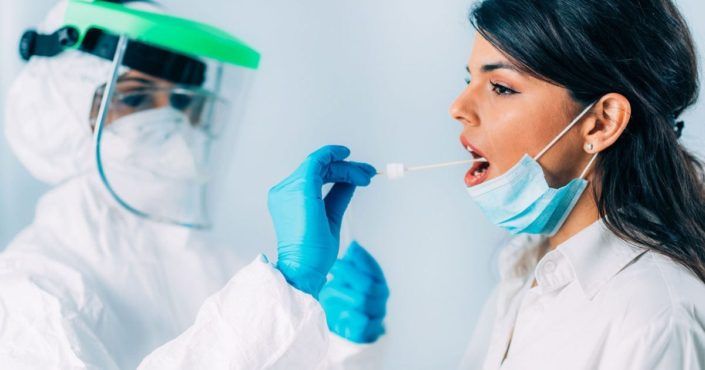COVID-19 Testing
COVID-19 Tests
If you feel you have COVID-19, stay home and get in touch with your loved ones doctor to get suggestions about list of positive actions next. Info on COVID-19 testing choices and accessibility continues to improve.
The Facilities for Disease Handle and Avoidance (CDC) has released help with who ought to be tested, which includes:
- Individuals who have outward indications of COVID-19.
- Those who have acquired a known contact with somebody with suspected or verified COVID-19.
Not really everyone must be tested, which explains why you should consult with your family physician. Should you choose get tested, you need to self-quarantine in the home pending test outcomes and follow the suggestions of your physician.
How do you get examined for COVID-19?
Testing accessibility varies depending on your geographical area. Check your neighborhood health section to see what areas in your area are doing tests. This might include hospitals, clinics, physicians’ workplaces, pharmacies, and free-standing places. A few of these will need you to actually move inside. Others present drive-thru tests and invite you to stay static in your car to avoid the possible pass on of COVID-19. According to the location, somebody may approach your vehicle to collect an example, or they may request you to gather it yourself. Samples for COVID-19 viral exams are gathered through nasal swabs or through saliva samples.
Based on where you obtain your test, you can find your results exactly the same time or you might have to wait a couple of days. Your results could be delayed if a large numbers of tests in your town are being carried out. It’s also vital that you remember that even though you get yourself a negative test, you might still have to self-isolate when you have been subjected to COVID-19. The reason being normally it takes time after publicity for your sample showing a COVID-19 infections.
What lab tests are for sale to COVID-19?
Two forms of assessments for COVID-19 are accessible:
The U.S. Food and Medication Management (FDA) made these checks available under a crisis use authorization. Which means that they may be used throughout a public health crisis. They will have not been completely reviewed and accepted by the FDA.
At the moment, we have limited here is how accurate COVID-19 tests are. It’s possible to allow them to show beneficial results that are incorrect (called a false good). They are able to also show negative outcomes that are incorrect (called a false damaging). Even though your test outcome is adverse, it’s vital that you keep following your loved ones physician’s recommendations to avoid the pass on of COVID-19.
Do you know the diagnostic testing for COVID-19?
Two forms of tests can be found to diagnose an ongoing COVID-19 an infection: a molecular ensure that you an antigen check.
The molecular test can be known as a polymerase chain response (PCR) check. It detects genetic materials of the virus that triggers COVID-19 (known as SARS-CoV-2). It’s the most precise diagnostic check for COVID-19.
The antigen check requires a sample gathered by swabbing the within of one’s nose. This test functions by detecting a distinctive protein on or about the virus that triggers COVID-19. If enough of the proteins is detected, the check is positive. Which means that you possess an active COVID-19 contamination.
Antigen exams are quicker than molecular tests, however they aren’t as accurate. For those who have a poor antigen test, your physician may suggest a molecular test to verify it.
What’s an antibody check?
The antibody test (also known as a serology check) checks your bloodstream for antibodies to the herpes virus that triggers COVID-19. Your disease fighting capability makes antibodies to greatly help fight harmful infections and bacteria. They’re produced a couple of days or weeks once you are infected. Various antibodies are created to combat different infections.
If antibodies are usually detected in your bloodstream, it might mean that you now have COVID-19 or which you have experienced COVID-19 recently. But a confident antibody test could imply that you’re infected with another coronavirus previously. That is why antibody tests aren’t used to diagnose an ongoing COVID-19 infection.
A poor antibody test implies that chances are you haven’t had COVID-19 during the past. It could also imply that you are currently contaminated with COVID-19 but haven’t started producing antibodies however.
Researchers have no idea yet whether those who have been contaminated with COVID-19 possess any immunity to the herpes virus or for just how long. Irrespective of your test outcomes, you should continue steadily to take steps to safeguard yourself among others from the coronavirus.
- should get examined 3-5 times after exposure, and use a mask in public areas indoor settings for two weeks or until they get a negative test outcome.
- Those who are not completely vaccinated should quarantine and become tested soon after being determined. If negative, they must be tested once again in 5–seven days after last direct exposure or immediately if signs and symptoms create during quarantine.
- Diagnostic lab tests
- Antibody assessments
